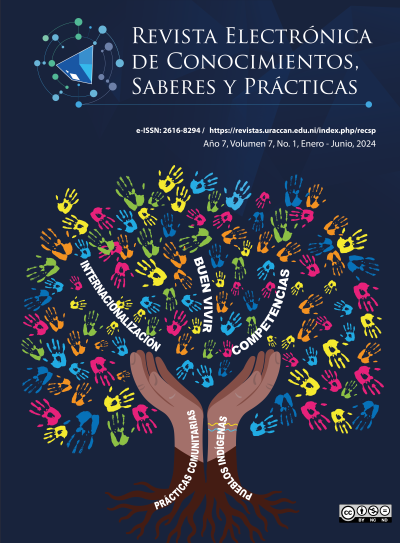Mirror classes as a pedagogical strategy: a methodological guide for its implementation at UNAN-Managua
DOI:
https://doi.org/10.5377/recsp.v7i1.19346Keywords:
Mirror classes, strategy, internacionalization, methodolyAbstract
Mirror Classes (MC) are an alternative to energize learning processes in classrooms. For Higher Education Institutions (HEIs), they represent not only an innovative way of teaching but also a timely means of leveraging the networks and inter-institutional alliances to which they are subscribed. Furthermore, they contribute to strengthening the internationalization process within the institution itself. The purpose of this article is to propose a methodological framework for implementing Mirror Classes, based primarily on a pilot experience conducted by academics from the National Autonomous University of Nicaragua, Managua (UNAN-Managua), in collaboration with peers from the Catholic University of Manizales (Colombia), the University of Avellaneda (Argentina), and the University of Guadalajara (Mexico), within the framework of an initiative promoted by the RED UDUALC network. The methodology was developed following a descriptive study approach, with an intentional sample of four professors from UNAN-Managua. A questionnaire was designed and later validated through expert judgment. The results indicate that the methodological framework for managing Mirror Classes involves: the international network leading the process, the international relations offices as a management and liaison entity, and the faculty members conducting the MCs. In conclusion, MCs allow the integration of the international dimension into educational processes, offering students new disciplinary perspectives, holistic learning, and intercultural insights that they can apply in various contexts and fields of action.
Downloads
444
resumen.mp3 (Español (España)) 89
abstract.mp3 (Español (España)) 84
Published
How to Cite
Issue
Section
License

This work is licensed under a Creative Commons Attribution-NonCommercial-NoDerivatives 4.0 International License.
At the moment in which a work is accepted for publication, it is understood that the author gives the Electronic Magazine of Knowledge and Practice (RECSP) exclusive rights of reproduction, distribution and sale of his manuscript for exploitation in all countries of the world in paper magazine format, as well as in any other magnetic, optical and digital media. The authors will also transfer to RECSP the rights of public communication for its dissemination and exploitation through Intranets, Internet and any wireless portals and devices decided by the publisher, by making available to users for online consultation of its content and its extract. , for printing on paper and / or for downloading and filing, all in the terms and conditions that appear on the website where the work is housed. In turn, the RECSP authorizes the authors of the works published in the journal to offer a copy of these works once published on their personal webs or in any open access repository. Together with this copy, a specific mention of the RECSP must be included, citing the year and the number of the journal in which the article or research note was published and adding, in addition, the link to the RECSP website.

